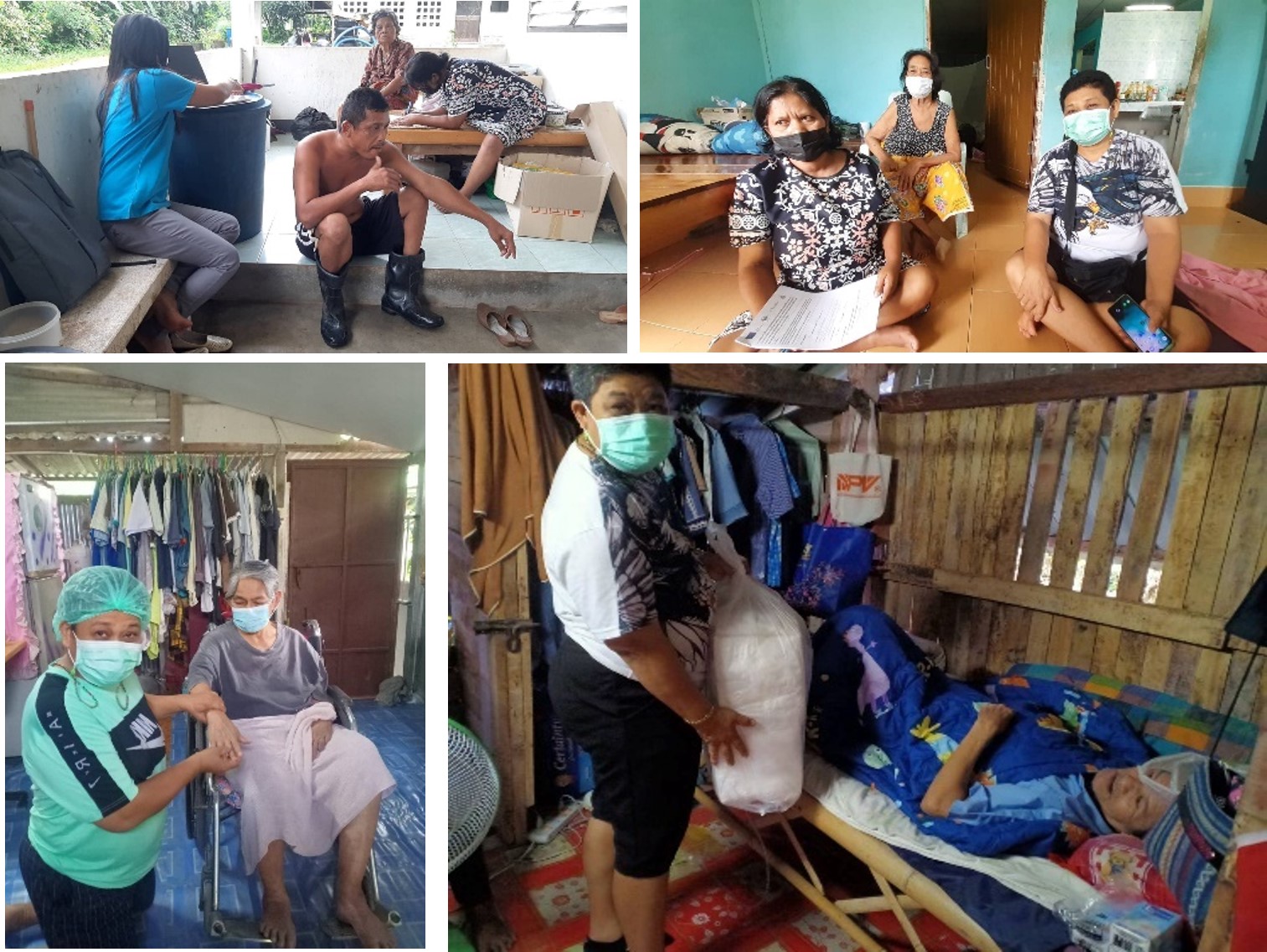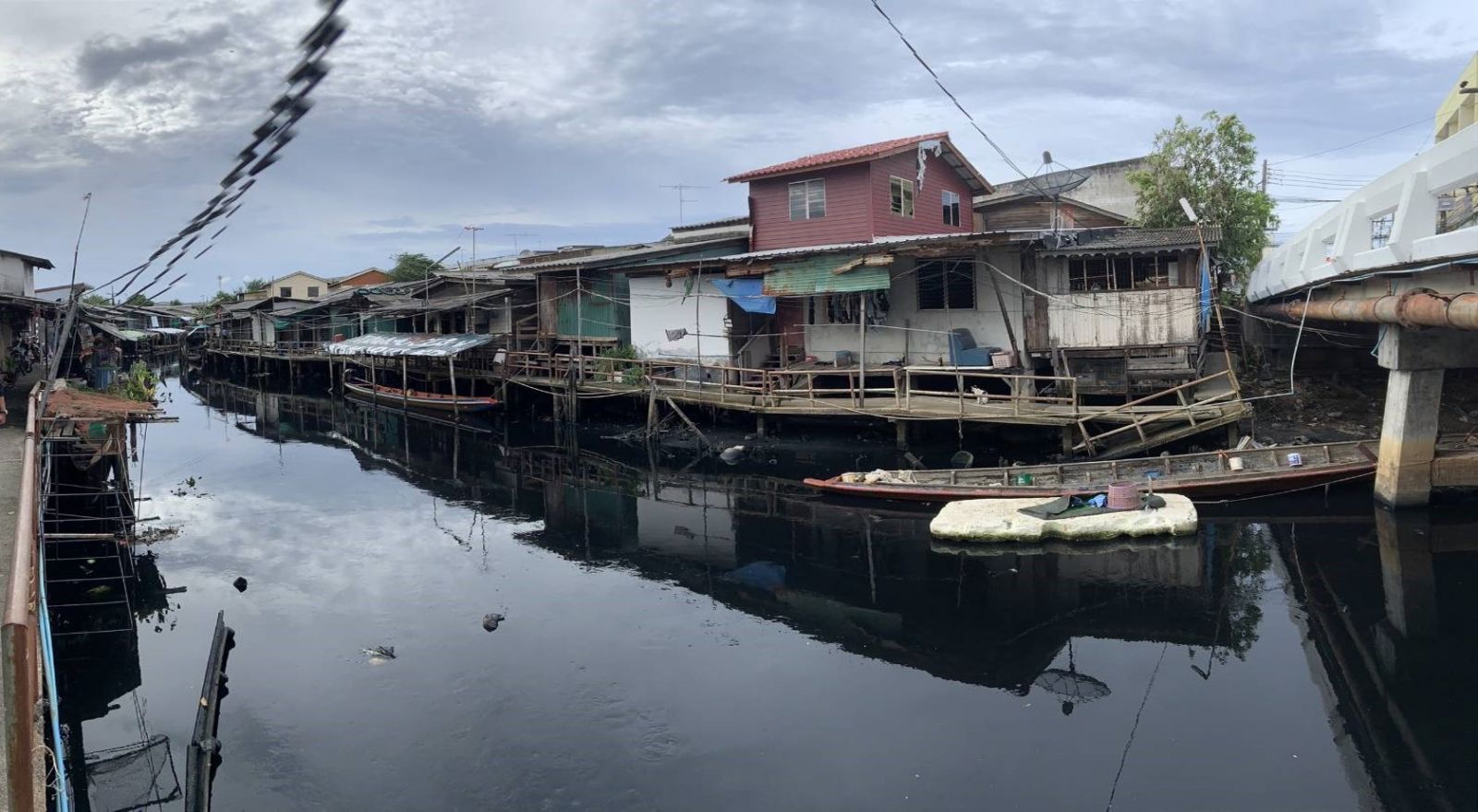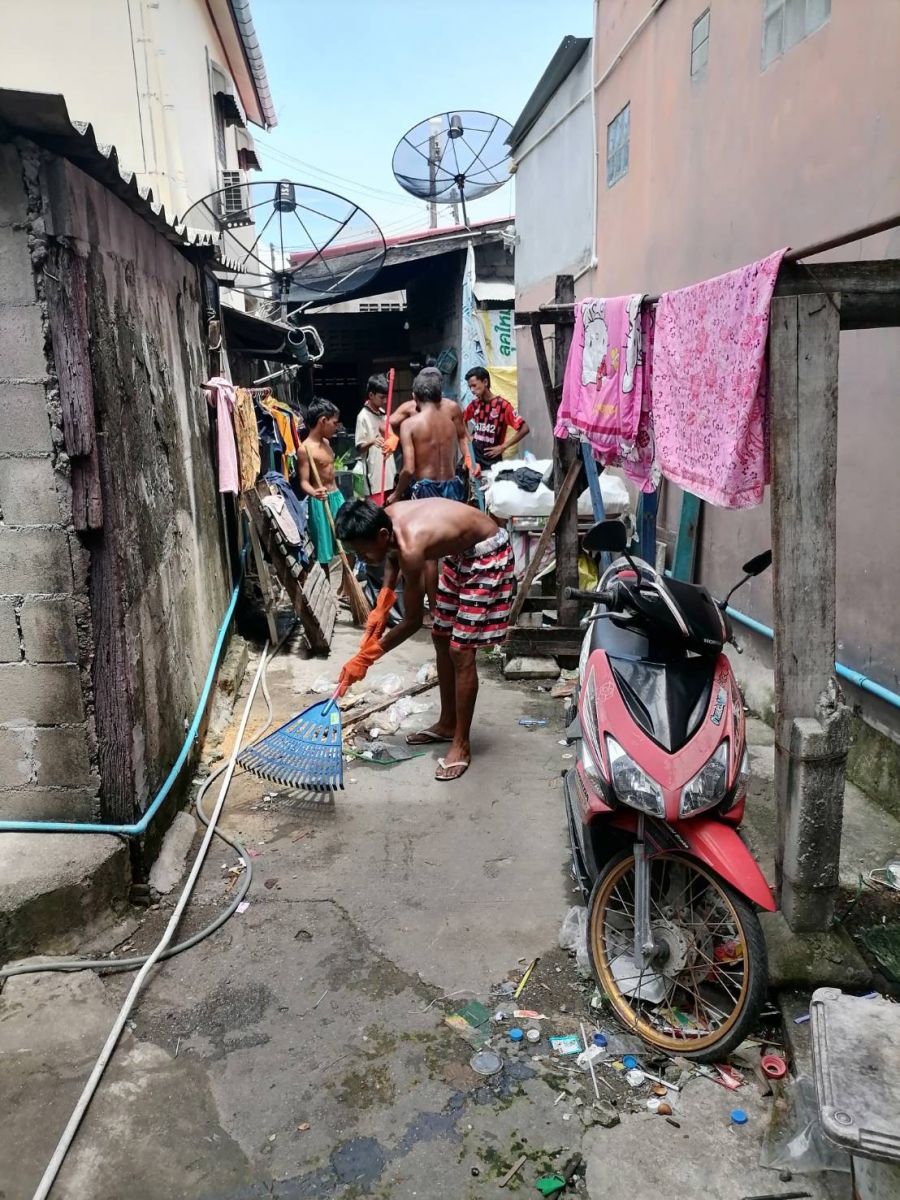First urban-context climate vulnerability assessments conducted by local CSOs in Thailand Twelve case studies of urban-context climate vulnerability assessments conducted by local civil society teams were completed in August 2022. The studies were supported by the European Union, under the project, ‘Strengthening urban climate governance for inclusive, resilient and sustainable societies in Thailand’ (SUCCESS).
In early 2021, 12 teams led by local civil society, non-governmental and community-based organisations were formed to collaboratively design, plan, and select sites for climate vulnerability assessment studies. Based in Khon Kaen, Udon Thani and Nong Khai in the Northeast, and Songkhla, Satun and Phattalung in the South, the local teams identified emerging and urgent urban development and climate related issues for deeper analysis.
With technical support and guidance from the Thailand Environment Institute (TEI), the Center for Civil Society and Non-profit Management (CSNM) and Songkhla Community Foundation (SCF), members of the 12 local teams were engaged in practical training exercises to learn and apply technical tools and methodologies for the climate vulnerability assessment.
Despite facing with difficulties and challenges of health risks, travel restrictions and lockdowns associated with the Covid-19 global pandemic, the 12 local teams successfully carried out field work and data collection. Vulnerable and marginalised groups, including the urban poor, lowincome, informal settlements, and women, participated in the assessments. Local governments and relevant government agencies were also engaged to provide insights and information on policies and development plans.
In the field of climate change, assessing climate vulnerabilities of communities and cities is crucial for planning and development of climate actions, adaptation, resilience strategies and disaster preparedness. In the urban context, it is important to examine the implications of urbanisation to better understand structural root causes of social vulnerability. Evidently, cities across Thailand are experiencing rapid urbanisation. Uncontrolled and unplanned changes in land use and ecological landscapes associated with urban development contribute to increasing exposure to climatic hazards and risks. Weak institutional capacity and ineffective urban governance contribute to increasing susceptibility to climate impacts and lower adaptive capacity through ill-informed decisions. Climate risks and impacts in cities are exacerbated by outdated, poorly designed and inadequate urban systems and infrastructure.

As a practical exercise, the climate vulnerability assessment in the urban context involved participatory approaches. It intended for enhancing the capacity of local CSO/NGO/CBO through learning new knowledge and applying technical skills. The studies provided an opportunity to better understand the linkages between urbanisation and climate impacts and the implications of rapid urbanisation on vulnerabilities, social inequalities, and urban poverty. The local teams also gained new project design and management skills. Networks of local multi-stakeholder were engaged to participate in knowledge sharing and decision-making. More importantly, the participatory approaches of vulnerability assessments promoted local ownership.
The 12 case studies of climate vulnerability represent diverse sets of local contexts, problems, and challenges. However, common themes emerge. Drastic land use change with poor or no urban planning and unjust development are contributing factors driving uneven impacts across different social groups and increasing disproportionate exposure to disasters. Water-related problems, such as floods and water supply shortages, are intensifying, occurring more frequently, and cropping up in new areas. Ill-informed infrastructure and engineering solutions invested by governments create new water-related challenges and socio-economic issues, further exacerbating existing problems.

Urban poor communities and informal settlements are vulnerable to climate change because they lack critical social structures and basic infrastructure that support their livelihoods and needs for day-to-day living. With limited or no access to welfare or state assistance, any crises, big or small, pose setbacks and a continual ‘process of recovery’. Where they live, and the low quality of dwellings, contribute to their susceptibility to weather-related crises. The lack of land ownership means they are faced with the insecurities and uncertainties associated with eviction threats.

Key findings, community-level data and knowledge generated from the urban climate vulnerability studies will inform local development planning and decisionmaking processes. The 12 local teams will engage with vulnerable social groups and strategic partners to develop urban and climate strategies and actionable plans to address key vulnerabilities and urban governance challenges. The next set of activities under the SUCCESS project will involve supporting the local teams to mainstream and integrate climate vulnerability and resilience thinking into urban development plans, decisions, and actions, using bottom-approaches.
.jpg)
In early October, representatives of the 12 local teams will come together in Songkhla to network, collaborate and engage in shared learning dialogues to strengthen urban climate knowledge and practices. They will be joined by all project partners, TEI, CSNM, SCF, Maastricht University, National Advisory Committee, and International Expert Group, and local multi-stakeholders, including planners and policymakers, in a week-long interactive workshop.
Recognising the importance and urgency of climate impacts and vulnerability in the urban context, the European Union (EU) has entrusted the Thailand Environment Institute Foundation (TEI) and its project partners, the Center for Civil Society and Non-profit Management (CSNM) at Khon Kaen University, Songkhla Community Foundation (SCF), and Maastricht University (UM, the Netherlands), to strengthen the capacity of civil society organisations in Thailand. The project will play a critical role in enhancing community adaptive capacity and improving urban climate governance practices.
Author: Dr Pakamas Thinphanga is an independent Urban Climate Resilience expert. As Project Director, she is leading the five-year EU-funded initiative, titled ‘Strengthening Urban Climate Governance for Inclusive, Resilient and Sustainable Societies in Thailand’ (SUCCESS), at the Thailand Environment Institute (TEI).



.jpg)

Share: